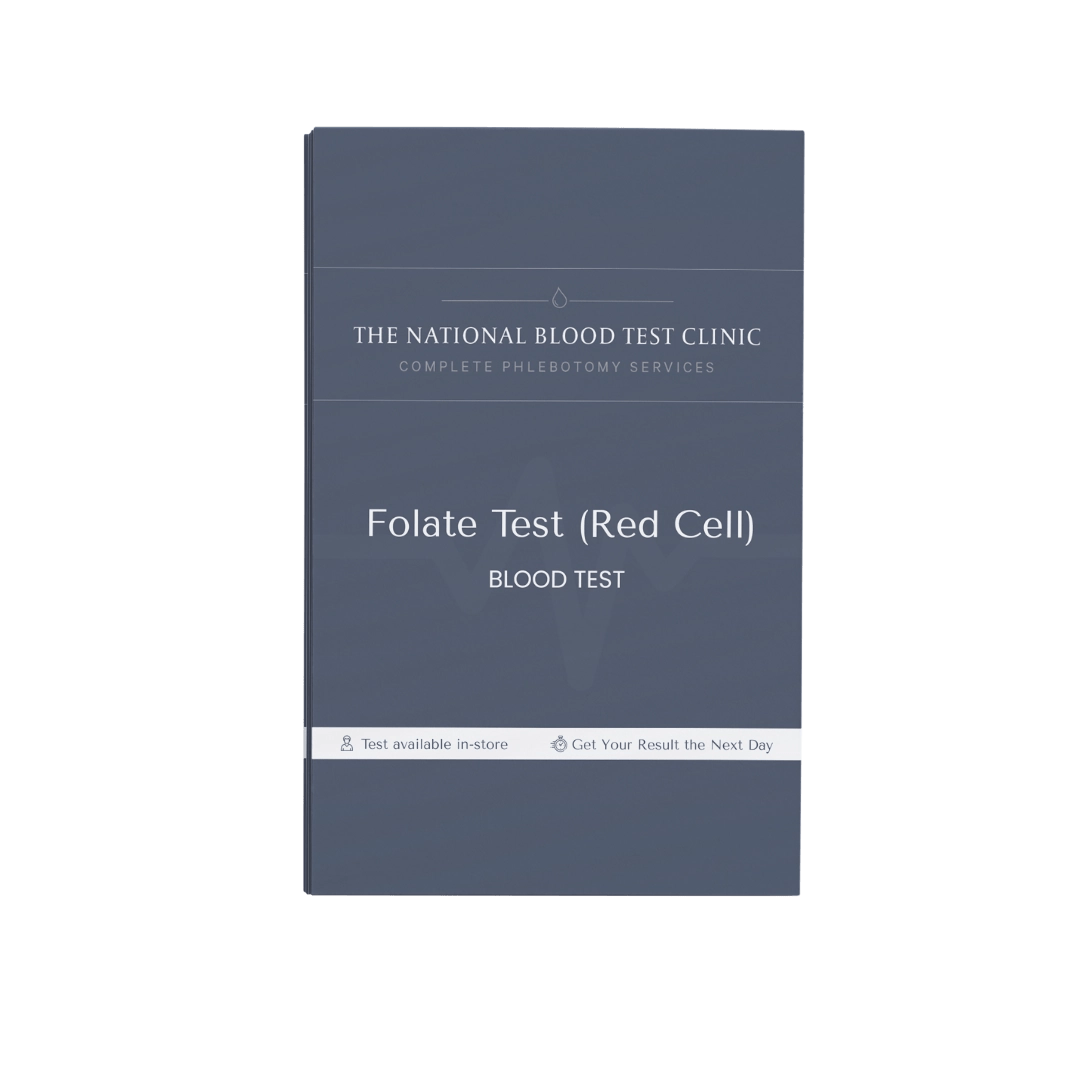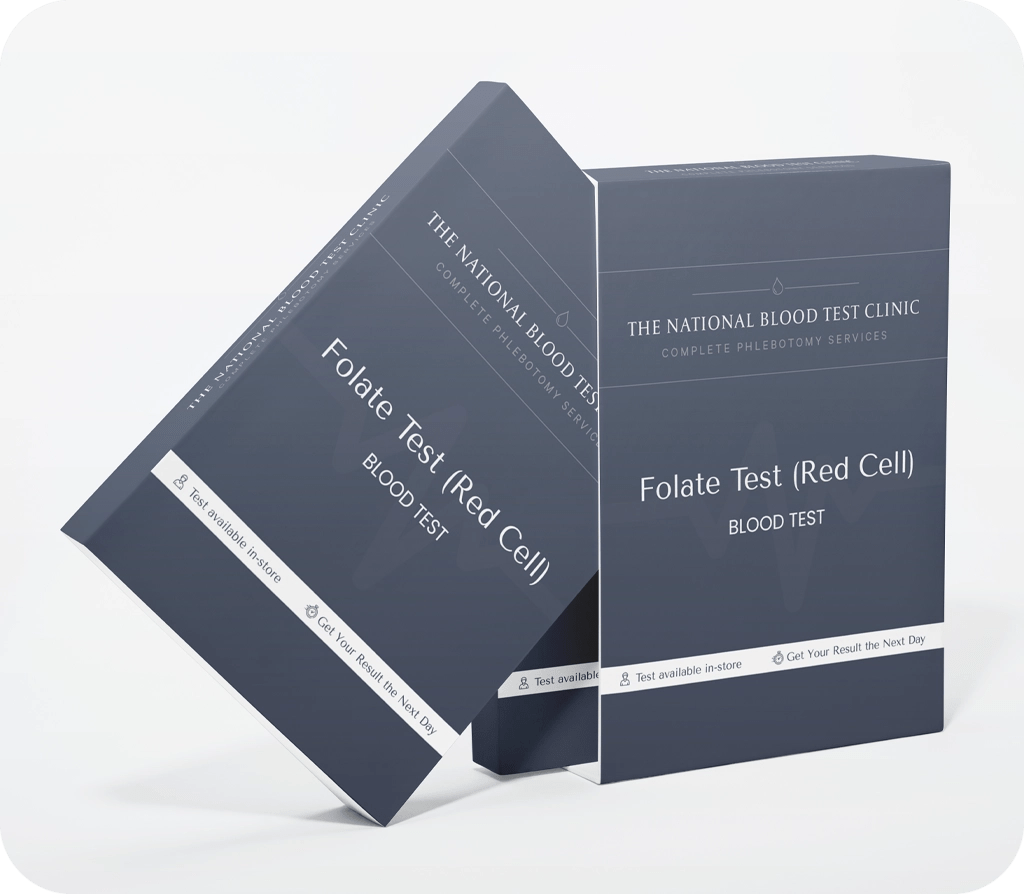My Store
Folate Test (Red Cell)
Folate Test (Red Cell)
SKU:FOLRC
Folate is essential for DNA synthesis, red blood cell formation, and proper nervous system function. The Red Cell Folate test measures folate stored inside red blood cells, providing a more stable indicator of long-term folate status than serum levels. This is particularly useful in diagnosing chronic folate deficiency, which can lead to anaemia, fatigue, and neurological issues.
Why Red Cell Folate Blood Test Matters?
By evaluating folate stored in red blood cells, the folate test via RBCs provides insight into your long-term nutritional balance. Detecting deficiency early can prevent complications, including megaloblastic anaemia, poor cell repair, and developmental issues in pregnancy.
What Gets Assessed?
- Folate Level in Red Cells
Turnaround Time
- 8 Days
100 in stock
Visit a partner clinic (+£50)
Once you've ordered your test, look out for an email from our phlebotomy partners containing information and a link to book your appointment. We'll send you everything the clinic will need to complete the sample and post it back to our labs.
Organise a nurse yourself
If none of the above options work for you, you can arrange your own medical professional to collect your sample. There is no additional charge for this. Once you've ordered your test, we'll send you everything you and your chosen medical professional will need to collect a sample and post it back to our labs.
Couldn't load pickup availability
Enter Your Details
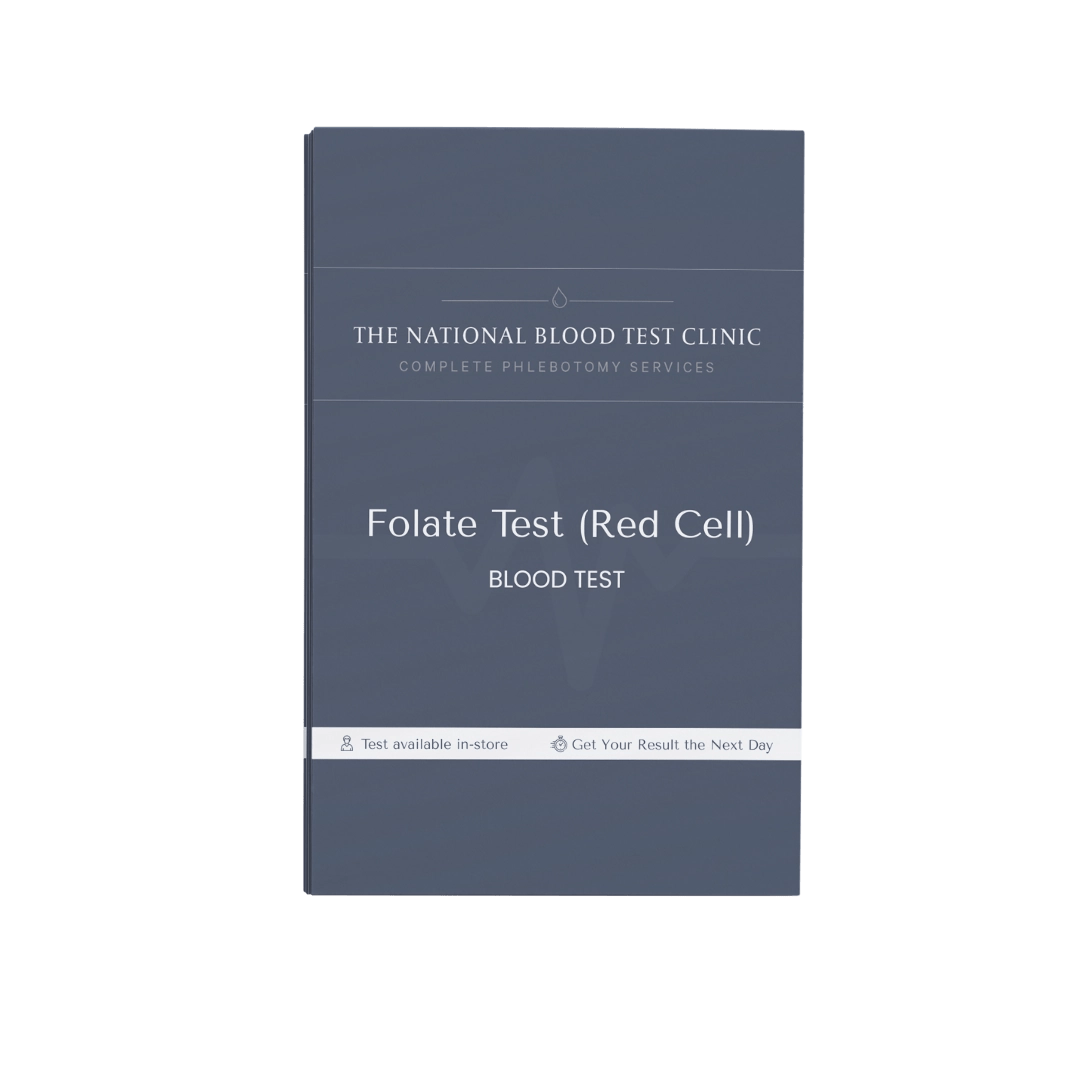
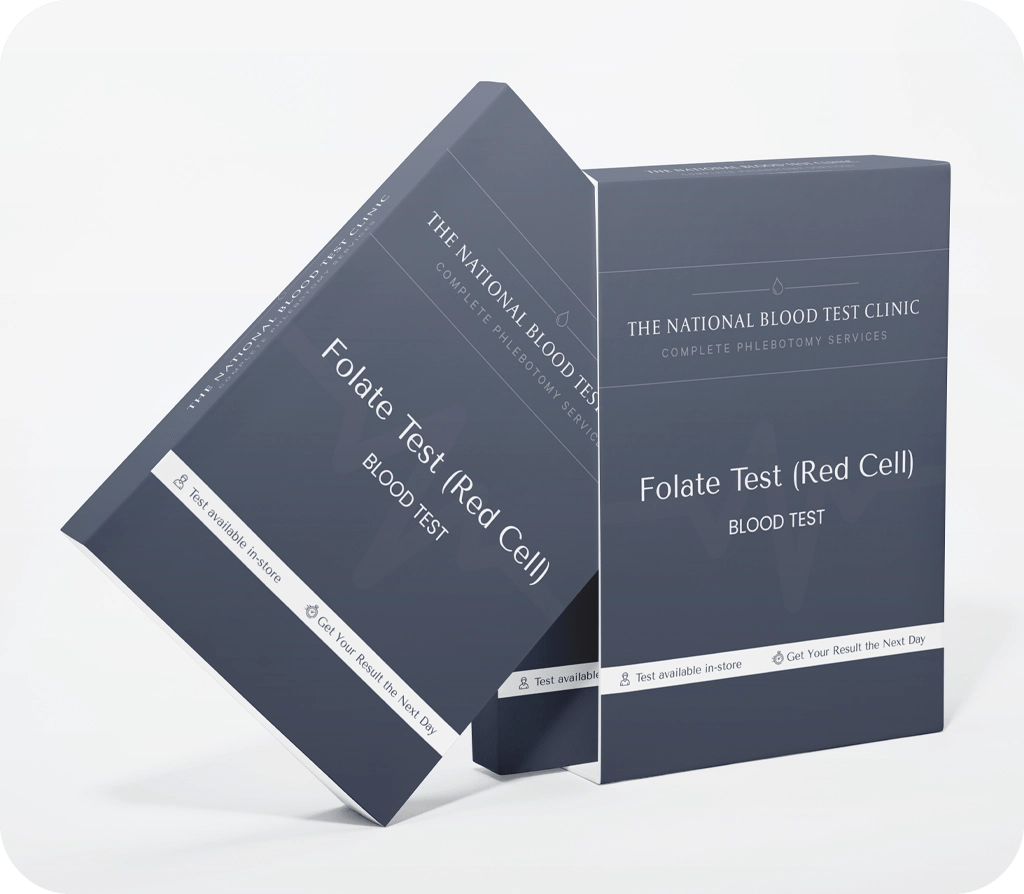
Visit a partner clinic (+£50)
Once you've ordered your test, look out for an email from our phlebotomy partners containing information and a link to book your appointment. We'll send you everything the clinic will need to complete the sample and post it back to our labs.
Organise a Nurse Yourself
If none of the above options work for you, you can arrange your own medical professional to collect your sample. There is no additional charge for this. Once you've ordered your test, we'll send you everything you and your chosen medical professional will need to collect a sample and post it back to our labs.
How Our Test Works
-

Place Your Order
Place your order online and receive a test kit delivered to your home. You’ll need to bring this kit with you to your scheduled appointment at one of our partner blood collection clinics.
-

Attend Your Appointment
At your chosen clinic, a trained nurse or phlebotomist will collect your blood sample using the kit you bring. If a sample collection courier is not available at the site, you’ll be asked to take the sealed sample with you and post it using the prepaid packaging provided.
-
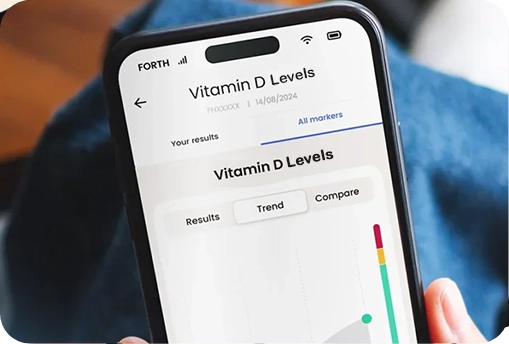
Receive Your Results
Once your results are ready, you’ll receive an email notification to log in and view them securely via your private portal. Please note: venous blood test results are not automatically reviewed by a doctor. We recommend booking a consultation with a qualified clinician to help you interpret and understand your results fully.
FAQs
What does the Folate (Red Cell) Test measure?
This test measures the amount of folate stored within red blood cells, providing a reliable reflection of your body’s long-term folate status.
Who should consider this test?
It is recommended for individuals with unexplained anaemia, persistent fatigue, poor dietary intake, or for pregnant women who may be at higher risk of deficiency.
How is the test carried out?
A sample of blood is taken from a vein and analysed to assess folate levels in the red cells.
Why choose this over a serum folate test?
Unlike serum folate, which can fluctuate depending on recent meals, red cell folate offers a more stable and accurate picture of your folate reserves.
Can folate levels be improved with diet or supplements?
Yes. Folic acid supplements and foods rich in folate, such as leafy green vegetables, legumes, and fortified cereals, can help restore and maintain healthy levels.
What is the normal range of folate in red cells?
The reference range for red blood cell (RBC) folate varies by age. In adults, it is 140–628 ng/mL (317–1422 nmol/L), while in children it is considered normal at over 160 ng/mL (over 362 nmol/L).
Subscribe to our emails
Be the first to know about new collections and exclusive offers.

